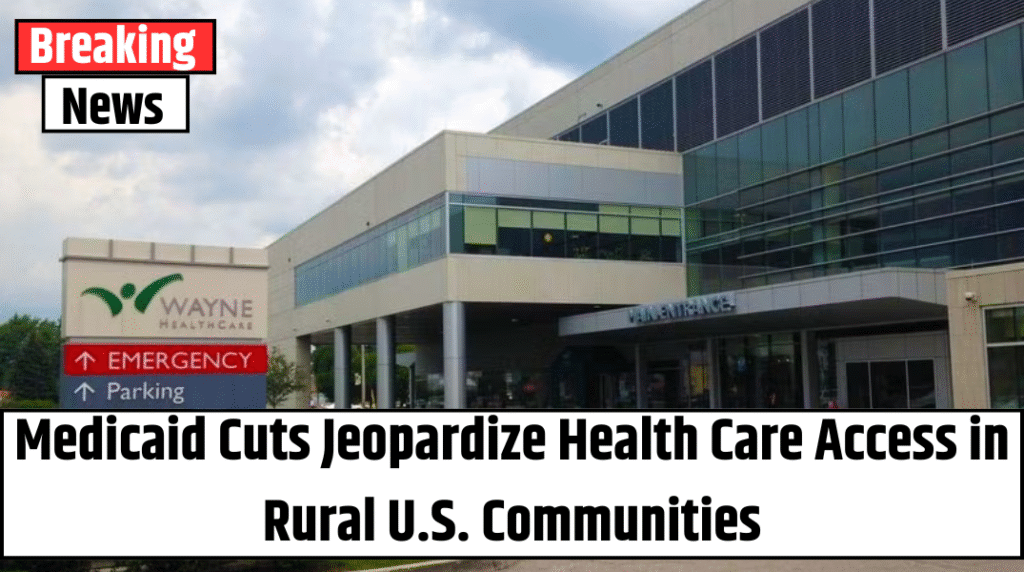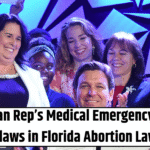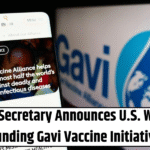Proposed Medicaid funding cuts could bring a wave of devastating consequences to rural communities across the U.S., according to Michael Shepherd, a health policy expert at the University of Michigan. Shepherd, an assistant professor at the School of Public Health, studies rural health disparities and the political dynamics that drive them. He warns that these cuts could trigger a dangerous chain reaction: hospital closures, job losses, worsened health outcomes—and growing distrust in government solutions.
The Lifeline of Rural Health Systems
For many rural communities, Medicaid is more than just a public insurance program—it’s the financial backbone of local health care. Roughly 23% of rural Americans rely on Medicaid, significantly higher than the national average of 19%. In many places, Medicaid covers half of all births and insures half of all children.
But even residents not enrolled in Medicaid feel its impact. Hospitals, clinics, and mental health providers depend on Medicaid reimbursements to keep their doors open. Cuts to Medicaid won’t just hurt those directly insured—it could force hospitals to shut down altogether, leaving entire communities without access to care.
“If Medicaid funding disappears, it’s not just a policy issue—it’s a survival issue for rural health care,” Shepherd says.
When Hospitals Close, the Community Suffers
The collapse of rural hospitals isn’t a hypothetical threat—it’s already happened. In McNairy County, Tennessee, the local hospital closed in 2016 after the state declined to expand Medicaid. Since then, residents have had to drive 45 minutes to an hour for basic medical services.
Also Read – RFK Jr. and Dr. Oz Announce Insurers’ Pledge to Ease Prior Authorizations
For Medicaid recipients, crossing state lines for care isn’t an option due to interstate restrictions. Instead, they’re forced to seek care even farther away, increasing the risk of serious complications in emergencies like heart attacks, strokes, or childbirth.
Research shows rural patients travel 20 more miles for routine care and up to 40 miles for specialized treatment after a hospital closure—distances that can be deadly in a crisis.
It’s Not Just About Health Insurance—It’s About the Local Economy
Hospitals often serve as the economic engines of rural communities. In many areas, they’re the largest employer, supporting hundreds of jobs and local businesses. When a hospital closes, the economic fallout is swift and severe—unemployment rises, incomes fall, and people start leaving in search of better opportunities.
The ripple effects reach beyond hospitals. Mental health clinics, which are particularly reliant on Medicaid, often shut down when funding dries up—cutting off access to care for those most in need.
A Tale of Two Policies: Medicaid Expansion vs. Cuts
Shepherd’s research highlights a striking trend: States that chose to expand Medicaid under the Affordable Care Act saw a dramatic decline in rural hospital closures. In contrast, states that rejected expansion—largely Republican-led—saw closure rates continue to climb.
In fact, about 80% of rural hospital closures since the ACA passed have occurred in non-expansion states, according to Shepherd. And the future looks bleak: the Center for Healthcare Quality and Payment Reform estimates that over 300 rural hospitals are currently at immediate risk of shutting down, even without further cuts.
“These hospitals are hanging by a thread,” Shepherd says. “Without Medicaid reimbursements, many will simply disappear.”
Why Are Lawmakers Backing These Cuts?
It seems counterintuitive that politicians would support policies that could harm their own voters—but Shepherd says it comes down to a breakdown in political accountability.
Many voters, especially in rural areas, struggle to connect policy decisions with real-world outcomes. In Shepherd’s research, even in cases where state lawmakers blocked Medicaid expansion, voters often blamed federal Democrats for their loss of local health services.
“There’s a vicious cycle I call the ‘rural health spiral,’” Shepherd explains. “As things get worse, people lose faith in government, which leads them to vote for politicians who are less likely to invest in health care solutions.”
This dynamic allows some elected officials to politically benefit from decisions that undermine their constituents’ well-being, while those who support health investments are blamed for system failures.
Also Read – Small but Vital Health Care Agency Faces Elimination Under Trump Plan
Medicaid Isn’t a Partisan Issue—It’s a Community Issue
Despite the politics, Medicaid remains popular across the political spectrum. National surveys reveal that 61% of Republicans, 71% of Independents, and 83% of Democrats believe Medicaid plays an important role in their communities.
Yet these proposed cuts risk alienating entire towns, stripping away services and jobs, and destabilizing the very communities lawmakers claim to represent.
“This isn’t just about a government program,” Shepherd says. “It’s about whether rural America can survive.”
Conclusion: The Stakes Are Higher Than Politics
Medicaid funding isn’t just a budget line—it’s the lifeblood of rural health care systems and economies. As lawmakers consider funding changes, experts like Shepherd warn that ignoring the human impact could bring irreversible harm.
Communities that are already underserved may soon find themselves with no hospital, no mental health support, and no safety net. Whether or not you personally rely on Medicaid, the reality is clear: when rural hospitals close, everyone suffers.



